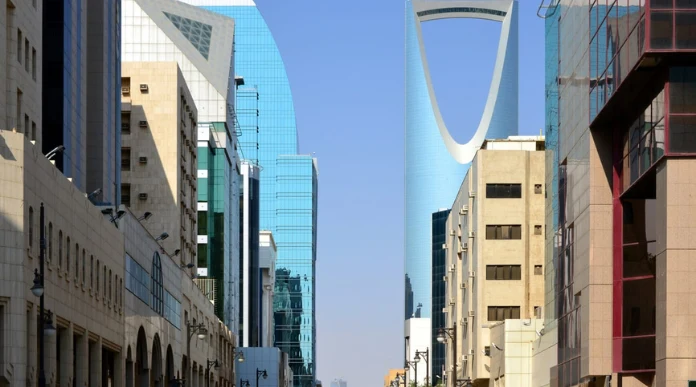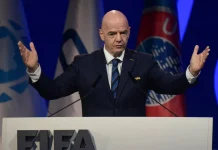Hosting the FIFA World Cup is quite an achievement for any country, and this has to be carried out perfectly in a range of infrastructural, logistical, hospitality, and event management aspects. As Saudi Arabia prepares itself for hosting the FIFA World Cup in 2034, its dependence largely on imported laborers for most of these crucial components is getting scrutiny.
High dependency on imported labor for modernizing the economy and infrastructure raises real questions shortly about sustainability, whether the current action makes an ethical consideration, and if the country is ready to deal with all the intricacies of hosting such a global event.
Overreliance on Foreign Expertise
Nevertheless, there is a clear segregation of expatriate and national forces within the Saudi labor market. According to the General Authority for Statistics report, about 77% of the country’s private sector workforce is foreign workers. This trend even expands to large events that Saudi hosts within the kingdom; in many cases, it tends to hire international experts and laborers because it has no manpower among its nationals.
For the FIFA World Cup, an event that calls for the absolute best expertise in planning, marketing, technology, and hospitality, Saudi Arabia will likely depend on an influx of foreigners to do that. In the short term, this approach can assure high-quality delivery, but it risks exposing the country’s lack of self-reliance as well as throwing doubt about its ability to deliver by itself in the long run.
Obstacles along the Pathway Toward Localization in the Workplace
Workforce localization has been a tough competition for the policy to reduce dependence on oil and diversify the economy through Saudi Vision 2030. The “Saudization” policy has had its positives by encouraging locals for employment purposes. Recent estimates reveal that around 35% of Saudi Arabia’s workforce is composed of foreign workers, significantly higher compared to roughly 17% in the United States.
That gap in the specialized sectors is almost impossible to bridge, however. Event management, construction, and logistics are cited as the other sectors where expatriates have dominated. Such people from other countries are brought in for large-scale international projects that are being executed.
This reliance creates a paradox: while the World Cup may boost employment opportunities in the short term, most of these opportunities will benefit foreign workers rather than Saudi nationals. This undermines one of the key legacies of hosting such an event: empowering local populations and leaving behind a skilled and experienced workforce.
Ethical Concerns Around Migrant Labor
Criticism has generally fallen on the treatment of migrant laborers by Saudi Arabia. The organization, under Kafala, a sponsorship-based employment framework-has drawn much international attention for having allowed the perpetuation of exploitative practices against workers who are often subjected to poor working conditions, delayed wages, and limited mobility—the possibility of ethical issues contradicting the organization’s adherence to human rights values.
The presence of foreign workers carries notable economic consequences for Saudi Arabia. While they play a vital role in supporting the economy by filling essential positions, a significant portion of their earnings is sent as remittances to their home countries. These outflows accounted for approximately 6.2% of Saudi Arabia’s GDP.
In preparation for the World Cup, massive construction works on stadiums, hotels, and other transport facilities would dominate the landscape. The bill for this would be taken up by low-paid migrant workers, mostly from South Asia. It’s already witnessing the human cost of such preparation in Qatar as thousands of workers complained of miserable working conditions for the 2022 FIFA World Cup.
Fiscal Impact of Imported Labour
The cost implication of over-reliance on imported labor is another consideration. The employment of foreign experts and workers incurs a higher cost. This would push the overall expenditure to host the World Cup more astronomically sky-high. Saudi Arabia has the financial ability to absorb such expenses, but it is not economically sustainable for the event.
Most of the money sent to expatriate workers will be remitted out of the country rather than being spent in the local economy. Thus, the wealth leakage lessens the expected economic benefits caused by hosting the World Cup, including expanding local businesses, long-lasting job creation, and community development. In early 2023, the private sector in Saudi Arabia employed approximately 7.8 million non-Saudi nationals, compared to 2.6 million Saudi citizens.
Logistical Complexities of Managing a Foreign Workforce
Inordinate inflows of foreign labor to stage a FIFA World Cup will have various logistics issues. Accommodation, transportation, work permits, and cultural integration for the broad workforce form a necessary area requiring particular planning to manage this large expatriate workforce.
Any mismanagement of these sectors could cause delays and inefficiencies and also a considerable amount of international backlash against Saudi Arabia’s ability to host the event. More importantly, these imported contracts are only temporary. Whatever infrastructure or logistical framework may be built to accommodate them becomes obsolete post-event. This is one of the reasons why relying on imported labor lacks sustainability.
Missed Opportunities for Local Empowerment
The success story misses an excellent opportunity for empowerment in a World Cup that is hosted with minimal reliance on local talent. Brazil and South Africa have applied such events to create opportunities for local employment, develop industries, and promote cultural heritage. Saudi Arabia and its overdependence on foreign expertise risk bypassing all this altogether.
Instead of generating national pride and ownership, the event may be viewed as a show externally managed and manipulated by forces outside their control. Expatriates make up roughly 66% of Saudi Arabia’s total workforce, highlighting the nation’s significant dependence on foreign labor, especially in industries such as construction, healthcare, and engineering.
Conclusion
While Saudi Arabia’s aspiration of hosting the FIFA World Cup 2034 reflects its vision of being a global player, several flaws behind its overdependence on imported labor exist. The ethical, economic, and opportunities that could have empowered the country make it not ready for such an event.
Saudi Arabia needs to address these systemic maladies and treat this event as a positive step in national development rather than a mere spectacle for transplanted know-how. Until then, suitability as a host nation remains under question. As much as the country would raise its inviting stature, there lies a paramount need for sustainable and inclusive planning that benefits all involved parties.













